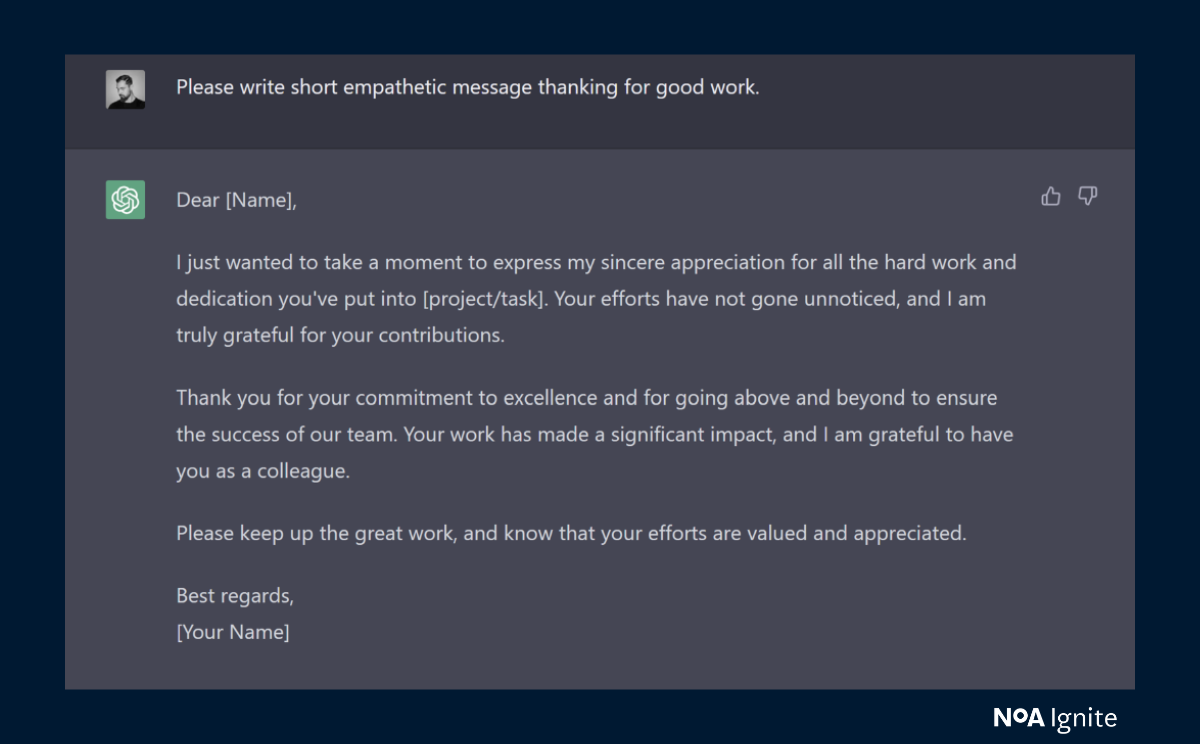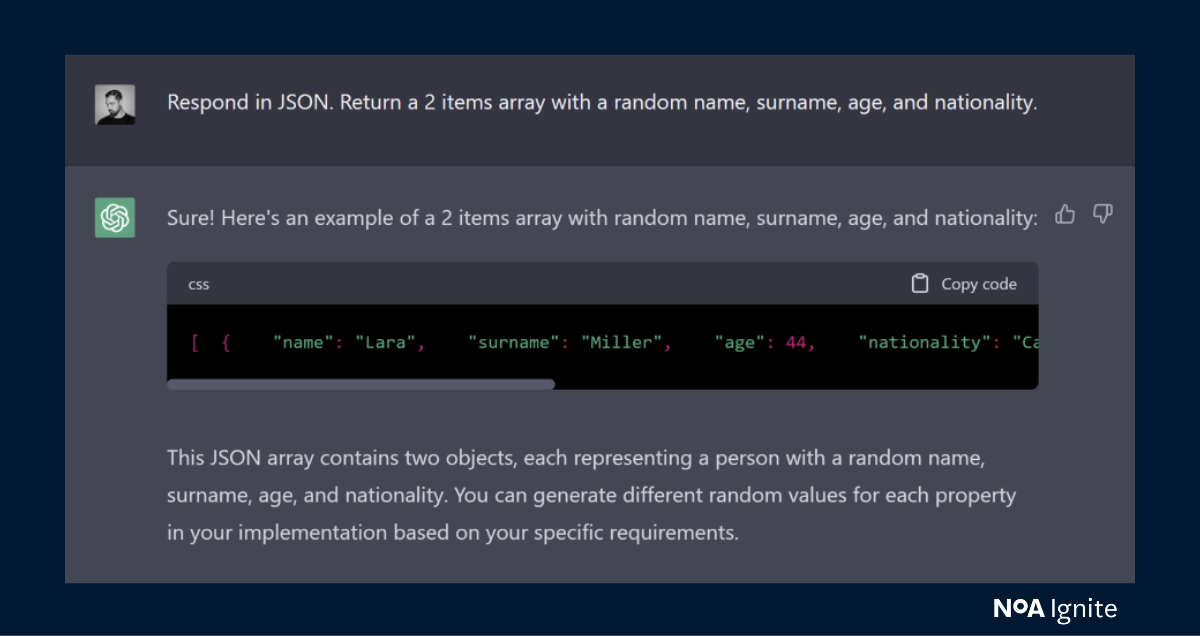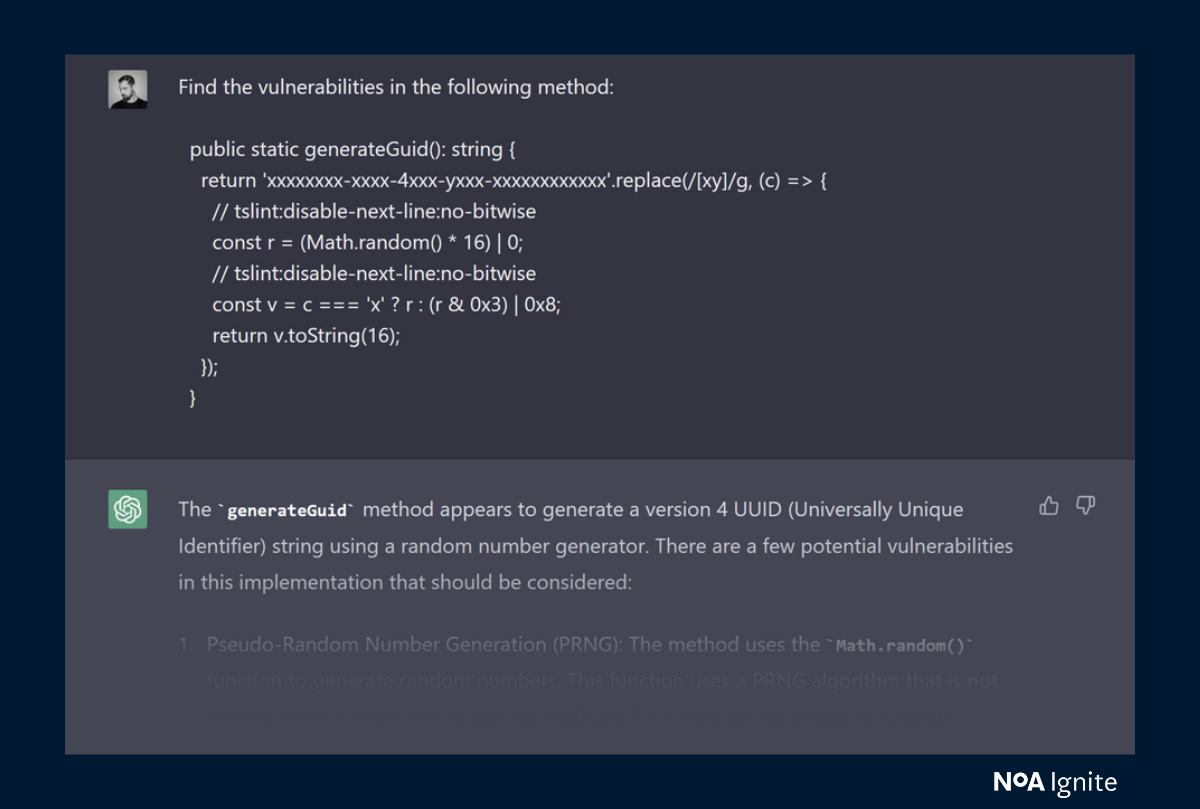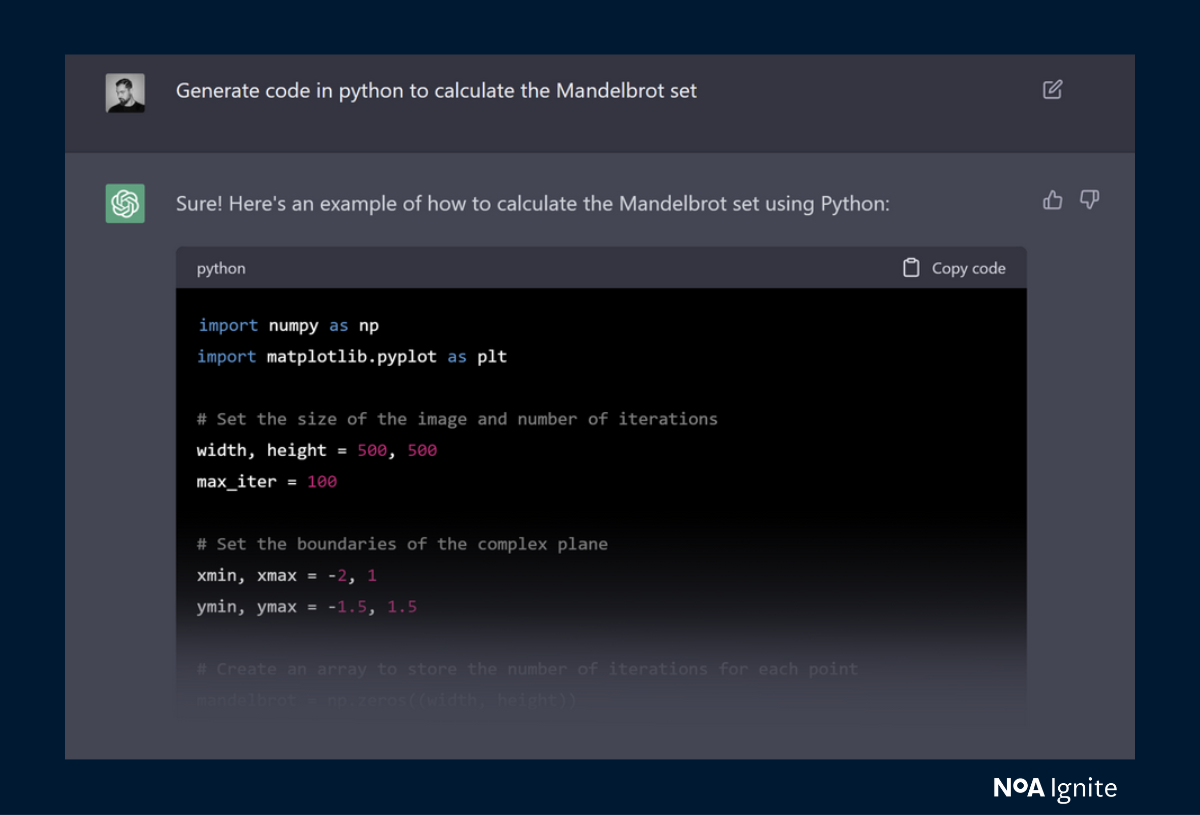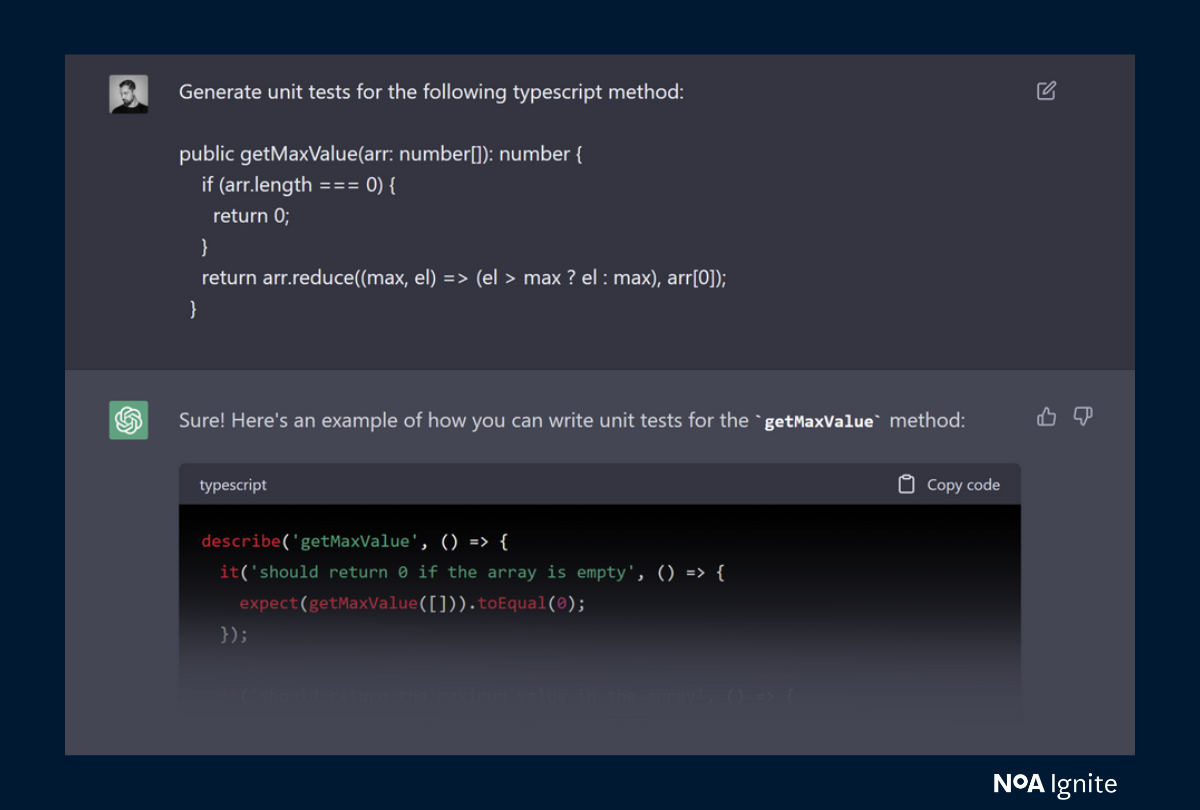ChatGPT is undoubtedly a brilliant invention that makes the work of countless people easier and faster. But will it replace software and web developers? Let’s find out!
During my time in the United States, I noticed that whenever I turned on the TV, more than ten channels broadcasting shopping programming would flood the screen. On each channel, a salesperson confidently proclaims why this product is the best and overperforms the competition. The fervent audience would often respond with enthusiastic shouts of "Wow!" after every sentence. However, one can question whether these figures genuinely believe in this product's excellence or try to sell you another silver pan at a super-promo price.
Conditions determine perception
The way in which we receive information greatly impacts our perception of it, whether it is factual or merely nonsense.
ChatGPT aims to embody eloquence and confidence in its responses, much like an expert in a certain area. However, instead of years of marketing training, its vast knowledge comes from an extremely large language model. Its ability to understand complex questions and generate answers through self-attention mechanisms can be so impressive that one might feel inclined to buy another product after every response.
Nevertheless, it is important to note that ChatGPT is not directly connected to the internet and is solely a language processing system, not a search engine. As a result, the veracity of the information it provides depends on the nature of the query posed to it.
Regardless, since we are people in the tech industry, it may be worthwhile to consider whether ChatGPT can assist in our daily tasks.
How ChatGPT makes our work easier
ChatGPT vs. Journalists
This is where ChatGPT truly shines. Its effortless ability to generate concise and eloquent text is remarkable.
So, how can we leverage this technology in our corporate lives? As tech professionals, many of us may come across as introverted and may struggle with crafting compelling emails or messages. We may resort to shortcuts or emoticons to express our gratitude or appreciation.
However, imagine being able to request ChatGPT to write a more polished message on our behalf. This would create a classic win-win situation where introverted IT guys could take advantage of the latest technology while the recipient would receive a more empathetic and thoughtful message.
ChatGPT is proficient in generating short and long pieces of text and can seamlessly produce blog posts and articles with ease. However, it is essential to be mindful of the specific nature of the topic you want to cover.
The more unusual, distinctive, or novel the subject matter, the greater the likelihood of receiving irrelevant information. Therefore, it is important to remember that the output's quality will depend on the input's quality.
ChatGPT vs. mundane, repetitive activities
It is hard to find a tech professional who enjoys taking meeting notes. Let us face it, it is tedious and time-consuming, and once you have done it, you are likely to be delegated as the court scribe for future meetings. However, if your team has access to Teams (in the premium plan), you can leverage ChatGPT to transcribe your meeting notes on your behalf. The beauty of this technology is that it will complete the task without complaint, leaving you to focus on the more pressing matters at hand.
Generating random data for testing purposes is often a necessary yet mundane task. Fortunately, you can leverage ChatGPT to automate this process for you. With ChatGPT, you can effortlessly generate quasi-random datasets in many different formats.
ChatGPT vs. security
The days when hacking skills were associated with long-bearded guys living in basements, who only knew the shower from Hitchcock's iconic scene, are long gone. Nowadays, many of us can become homegrown hackers using well-known, easily accessible tools. With the right questions, ChatGPT can help you discover vulnerabilities or suggest exploits. Breaking your neighbor's router no longer requires being the next Kevin Mitnick. However, it is essential to make a clear statement here: YOU DO IT AT YOUR OWN RISK.
ChatGPT vs. Developers
Although ChatGPT is a powerful tool for generating code, its capabilities are limited by the data it was trained on, which only extends up to September 2021. Therefore, the generated code may be outdated and unusable for rapidly evolving frameworks and programming languages. However, for more established languages such as C, C++, Fortran, Python, PowerShell, Bash, and others that are not experiencing rapid changes, ChatGPT can be a reliable and valuable tool for generating efficient code.
The same limitations apply when generating simple web components, such as Angular or React. The available frameworks, methods, and syntax may have changed since the ChatGPT model was last trained.
What about unit tests? As developers, we generally have a positive outlook, so we usually test only the happy paths in our applications. 😉 For these purposes, as well as edge cases, ChatGPT can generate a valuable set of tests. However, we must remember that testing frameworks are constantly evolving, and similarly to programming languages, generated tests may not run correctly or at all. Additionally, it is tough to create meaningful tests for more complex scenarios.
IT professionals are here to stay!
Many of us may wonder whether ChatGPT will render IT professionals redundant shortly. Well, the answer is no.
Despite its limitations, ChatGPT can assist these experts in their daily tasks. It is a more advanced code completion tool that can aid in writing documentation, blog posts, and articles. Nonetheless, with increasingly significant players investing heavily in this technology, the future remains unpredictable.
If other players in the IT industry integrate chat capabilities into their full suite of tools, we may see a tremendous leap forward in technology.
Microsoft has recently introduced Copilot, a new AI-based assistant, which will be available in some of the company's most widely used business applications, including Word, PowerPoint, and Excel. This is just one example of how the integration of chat and AI is leading to exciting advancements in the field.
Honestly, let us not fret, for the future still holds promise for us tech guys. As the Matrix trilogy implies, AI may still require us... at least as a source of bioenergy. 😉
Author

Paweł Strąg
Chief Technology Officer
The last 4 years of Pawel’s 18-year IT career has been spent exclusively on cloud platforms. He has a proven track record of delivering effective solutions for large enterprises and is currently involved in developing a highly-accurate cloud computing platform supporting wind energy calculations for wind turbines.
Related articles
![A well-crafted prompt doesn’t just work once. It works across teams, channels, and campaigns. It can be tweaked for new use cases and refined based on what performs best.]()
June 27, 2025 / 4 min read
Prompts are not just for AI. Why building a prompt library pays off
Prompts aren’t throwaway lines. They’re repeatable, scalable assets that can streamline your marketing your team’s output. Learn how to build a prompt library that delivers.
![Woman using a wheelchair in the office settings]()
June 17, 2025 / 5 min read
What is accessibility and why it matters?
Accessibility ensures everyone — including those with disabilities or limitations — can read, navigate, and engage with your content equally.

